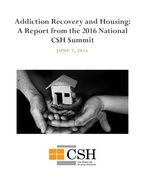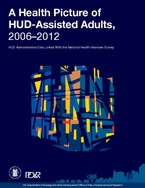0
Report
Community:
Nov 4, 2022
The 2021 National Academies of Science, Engineering, and Medicine (NASEM) report, Implementing High-Quality Primary Care: Rebuilding the Foundation of Health Care defined a need for coordinated primary care leadership at the federal level. n a new Milbank Memorial Fund report, the Center for Professionalism and Value in Health Care’s Robert L. Phillips, Jr., Milbank Memorial Fund’s Christopher F. Koller, and Covered California’s Alice Hm Chen expand on NASEM recommendations and call for congressional support to establish an Office of Primary Care at the federal level to coordinate existing primary care services and provide oversight to initiatives focused on workforce training, behavioral health integration, clinical comprehensiveness, and payment. According to the authors, creating a robust investment in federal leadership in primary health care that includes a triad of a US Health and Human Services Secretary’s Council on Primary Care, a Primary Care Advisory Committee, and an Office of Primary Care will be essential to addressing the country’s four most important public health challenges: health inequities, pandemic response and resilience, the opioid epidemic, and access to mental health services.
Authored by: Robert L. Phillips Jr, Christopher F. Koller, and Alice Hm Chen for The Milbank Memorial Fund
Topics: COVID-19, Health, Low-income, Mental health, Substance abuse, Workforce development, Youth
 Shared by Sandra Ware
Shared by Sandra Ware
Sandra Ware posted a
on Nov 8, 2022
Robert L. Phillips Jr, Christopher F. Koller, and Alice Hm Chen for The Milbank Memorial Fund
The 2021 National Academies of Science, Engineering, and Medicine (NASEM) report, Implementing High-Quality Primary Care: Rebuilding the Foundation of Health Care defined a need for coordinated primary care leadership at the federal level.
0
Research
Community:
Aug 5, 2019
CLPHA developed a general data sharing template that public housing authorities (PHAs) and their health partners can customize to suit their data sharing and collaboration needs. Please feel free to comment to share any uses/modifications your organization made to implement into a partnership.
Authored by:
Topics: Affordable Care Act, CLPHA, Community development, Cost effectiveness, Data sharing, Dental, Depression, Dual-eligibles, Funding, Health, Healthy homes, Legislation & Policy, Low-income, Medicaid / Medicare, Mental health, Metrics, MTW, Nutrition, Obesity, Partnerships, Place-based, Preventative care, Racial inequalities, Research, SAMHSA, Smoke-free, Stability, Substance abuse, Supportive housing, Sustainability, TA
 Shared by Steve Lucas
Shared by Steve Lucas
Steve Lucas posted a
on Aug 5, 2019
Disclaimer: This template is provided for informational purposes only and not for the purpose of providing legal advice. You should contact your attorney to obtain advice with respect to any particular issue or question. Use of this template, including its exhibits and attachments, does not create a relationship or any responsibilities between CLPHA and the user.
CLPHA developed a general data sharing template that public housing authorities (PHAs) and their health partners can customize to suit their data sharing and collaboration needs. Please feel free to comment to share any uses/modifications your organization made to implement into a partnership.
0
News Article
Community:
Apr 21, 2019
The county’s preliminary results look promising: more than 78% of Vital clients were booked into jail less often once enrolled in the program for at least six months. On average, Vital participants went to jail about a third less often per year compared to the three years before their enrollment. A typical client had at least two fewer bookings into a King County Jail compared to the three years before entering the program.
Authored by: Vianna Davila for The Seattle Times
Topics: Criminal justice, Health, Homelessness, Housing, Mental health, Partnerships, Substance abuse
 Shared by Housing Is
Shared by Housing Is
Housing Is posted a
on Apr 25, 2019
Vianna Davila for The Seattle Times
The county’s preliminary results look promising: more than 78% of Vital clients were booked into jail less often once enrolled in the program for at least six months. On average, Vital participants went to jail about a third less often per year compared to the three years before their enrollment.
0
Publication
Community:
Jan 17, 2019
The North Coast Health Improvement and Information Network (NCHIIN) was funded by DASH CIC-START to add new partners, sectors, mental health client summary data, and facility alerts to ACT.md, the care coordination and alerts notification system in Humboldt County, CA. As part of their CIC-START project, NCHIIN developed this document, which provides a methodology for onboarding new organizations, data streams, and sectors into the ACT.md platform.
Authored by: Data Across Sectors for Health (DASH)
Topics: Criminal justice, Data sharing, Health, Mental health, Partnerships, Substance abuse
 Shared by Mica O'Brien
Shared by Mica O'Brien
Mica O'Brien posted a
on Feb 20, 2019
Data Across Sectors for Health (DASH)
The North Coast Health Improvement and Information Network (NCHIIN) was funded by DASH CIC-START to add new partners, sectors, mental health client summary data, and facility alerts to ACT.md, the care coordination and alerts notification system in Humboldt County, CA.
0
Report
Community:
Jan 24, 2019
The purpose of this paper is to examine barriers to the integration of clinical health care and mental health services, and to identify policy options for consideration in advancing integration of services.
Authored by: Bipartisan Policy Center
Topics: Health, Mental health, Preventative care, Research, Substance abuse
 Shared by Mica O'Brien
Shared by Mica O'Brien
Mica O'Brien posted a
on Feb 12, 2019
The purpose of this paper is to examine barriers to the integration of clinical health care and mental health services, and to identify policy options for consideration in advancing integration of services.
0
News Article
Community:
Jan 18, 2019
The State of Arizona’s Medicaid agency (AHCCCS) recognizes the vital importance of safe, decent and affordable housing to health. With a portfolio of over 3,000 units of affordable housing for Medicaid members with a determination of serious mental illness (SMI) and/or substance use disorder, housing is a major component of how the State of Arizona assists those trying to recover and stabilize.
Authored by: Josh Crites for The Journal of Housing & Community Development
Topics: Cost effectiveness, Health, Housing, Low-income, Medicaid / Medicare, Mental health, Partnerships, Substance abuse
 Shared by Housing Is
Shared by Housing Is
Housing Is posted a
on Jan 22, 2019
Josh Crites for The Journal of Housing & Community Development
The State of Arizona’s Medicaid agency (AHCCCS) recognizes the vital importance of safe, decent and affordable housing to health.
0
Report
Community:
Oct 24, 2018
CLPHA’s Housing Is Initiative is engaged in a number of cross-sector activities focused on developing partnerships, facilitating a community of practice, resource development, promoting best practices, online collaboration, policy and advocacy, and training and education. Read about recent activities in this Fall Update.
Authored by:
Topics: Child welfare, CLPHA, Community development, Cost effectiveness, Data sharing, Early childhood, Education, Family engagement, Funding, Health, Homelessness, Housing, Low-income, Medicaid / Medicare, Mental health, Partnerships, Place-based, Post-secondary, Research, Stability, Substance abuse, Workforce development, Youth
 Shared by Mica O'Brien
Shared by Mica O'Brien
Mica O'Brien posted a
on Oct 24, 2018
CLPHA’s Housing Is Initiative is engaged in a number of cross-sector activities focused on developing partnerships, facilitating a community of practice, resource development, promoting best practices, online collaboration, policy and advocacy, and training and education.
0
Policy Brief
Community:
Aug 9, 2018
Social determinants of health are the economic and social conditions that affect health outcomes and are the underlying, contributing factors of health inequities. Examples include housing, educational attainment, employment and the environment.
Authored by:
Topics: Affordable Care Act, Disabilities, Health, Homelessness, Housing, Low-income, Medicaid / Medicare, Mental health, Partnerships, Place-based, Substance abuse, Supportive housing
 Shared by Housing Is
Shared by Housing Is
Housing Is posted a
on Aug 9, 2018
Social determinants of health are the economic and social conditions that affect health outcomes and are the underlying, contributing factors of health inequities. Examples include housing, educational attainment, employment and the environment.
0
Publication
Community:
Jul 27, 2018
Anthem’s affiliated health plans and other managed care organizations (MCOs) increasingly are helping Medicaid members who are diagnosed with mental health conditions and substance use disorders (MH/SUD) find stable housing, secure meaningful employment, and address a range of financial and daily life challenges.
Authored by:
Topics: Affordable Care Act, Cost effectiveness, Depression, Funding, Health, Housing, Medicaid / Medicare, Mental health, Nutrition, Substance abuse, Supportive housing, Workforce development
 Shared by Housing Is
Shared by Housing Is
Housing Is posted a
on Jul 27, 2018
Anthem’s affiliated health plans and other managed care organizations (MCOs) increasingly are helping Medicaid members who are diagnosed with mental health conditions and substance use disorders (MH/SUD) find stable housing, secure meaningful employment, and address a range of financial and daily li
0
Publication
Community:
Jul 27, 2018
On January 1, 2014, in states that have chosen to expand Medicaid eligibility under the Affordable Care Act, nearly all chronically homeless people who lacked health insurance became eligible for Medicaid. This Primer offers state Medicaid officials and other interested parties strategies for using Medicaid to meet the needs of this very vulnerable population--some strategies that have succeeded in the past and some that are emerging under provisions of the Affordable Care Act.
Authored by:
Topics: Affordable Care Act, Criminal justice, Disabilities, Dual-eligibles, Funding, Health, Homelessness, Housing, Low-income, Medicaid / Medicare, Mental health, Partnerships, Stability, Substance abuse, Supportive housing
 Shared by Housing Is
Shared by Housing Is
Housing Is posted a
on Jul 27, 2018
On January 1, 2014, in states that have chosen to expand Medicaid eligibility under the Affordable Care Act, nearly all chronically homeless people who lacked health insurance became eligible for Medicaid.
0
Interactive
Community:
Jul 20, 2018
Kaiser Permanente NW Community Benefit intends to award at least $1.5 million in community grants to support organizations that help people with behavioral health challenges to secure and maintain safe, stable housing. A minimum of five grants of up to $325,000 will be awarded for projects lasting 3 ½ years. Projects must include the involvement of peers or community health workers (CHWs) and must involve collaboration between housing providers, health care providers (including behavioral health service providers) and those community organizations employing peers or CHWs.
Authored by:
Topics: Funding, Health, Homelessness, Housing, Mental health, Pacific Northwest, Partnerships, Place-based, Preventative care, Substance abuse
 Shared by Housing Is
Shared by Housing Is
Housing Is posted a
on Jul 20, 2018
Kaiser Permanente NW Community Benefit intends to award at least $1.5 million in community grants to support organizations that help people with behavioral health challenges to secure and maintain safe, stable housing.
0
Policy Brief
Community:
Jul 17, 2018
The Denver Social Impact Bond program is an initiative aimed at measurably improving the lives of people most in need by driving resources towards better, more effective programs. Social Impact Bonds are a unique type of performance-based contract where private and/or philanthropic lenders loan funds to accomplish a specific objective and are repaid based on whether the program achieves its goals. Denver’s Social Impact Bond program will use funds from lenders to provide housing and supportive case management services to at least 250 homeless individuals who frequently use the city’s emergency services, including police, jail, the courts and emergency rooms.
Authored by:
Topics: Community development, Cost effectiveness, Criminal justice, Health, Homelessness, Housing, Low-income, Mental health, Partnerships, Stability, Substance abuse, West Coast
 Shared by Housing Is
Shared by Housing Is
Housing Is posted a
on Jul 17, 2018
The Denver Social Impact Bond program is an initiative aimed at measurably improving the lives of people most in need by driving resources towards better, more effective programs.
0
Publication
Community:
Jul 13, 2018
Recognizing the layers to developing a health and housing partnership, this Literature Review and Resource Bank is intended to provide background and data resources that can be used in grant applications or in conversations with potential funders in the effort to foster new health and supportive housing partnerships.
Authored by:
Topics: Cost effectiveness, Criminal justice, Data sharing, Dual-eligibles, Funding, Health, Homelessness, Housing, Low-income, Medicaid / Medicare, Mental health, Partnerships, Post-secondary, Preventative care, Research, Seniors, Substance abuse, Supportive housing, Youth
 Shared by Housing Is
Shared by Housing Is
Housing Is posted a
on Jul 13, 2018
Recognizing the layers to developing a health and housing partnership, this Literature Review and Resource Bank is intended to provide background and data resources that can be used in grant applications or in conversations with potential funders in the effort to foster new health and supportive hou
0
Publication
Community:
Jul 12, 2018
This brief aims to bring attention to non-Medicaid funding sources that states could potentially blend or braid to address social determinants of health and other needs that are not typically covered by Medicaid. It is intended to familiarize state Medicaid, public health, and other state policymakers with the funding streams of other agencies, and sketch out a continuum of options to help states coordinate funding to better serve the needs of low-income populations. Because this brief focuses on services for adult Medicaid beneficiaries, it does not address many of the funding sources available for children’s services. However, existing efforts to pool funds for children and youth—notably by the Commonwealth of Virginia—could prove instructive for states seeking to launch such an effort for adults.
Authored by:
Topics: Cost effectiveness, Data sharing, Dual-eligibles, Food insecurity, Funding, Health, Homelessness, Housing, Legislation & Policy, Low-income, Medicaid / Medicare, Mental health, Partnerships, Research, Substance abuse
 Shared by Housing Is
Shared by Housing Is
Housing Is posted a
on Jul 12, 2018
This brief aims to bring attention to non-Medicaid funding sources that states could potentially blend or braid to address social determinants of health and other needs that are not typically covered by Medicaid.
0
Report
Community:
Jul 12, 2018
On June 7, 2016 CSH invited a diverse group of national experts from the housing, homeless prevention, Substance Use Disorder (SUD) treatment, mental health, criminal justice and recovery fields for a special meeting on the topic of addiction recovery and housing. The primary goal of the convening was to engage participants in a thoughtful discussion around how CSH can work with our national and local partners to promote recovery in supportive housing and ensure that supportive housing is part of the continuum of recovery supports available for people living with addiction.
Authored by:
Topics: Criminal justice, Dual-eligibles, Health, Homelessness, Housing, Legislation & Policy, Mental health, Partnerships, Substance abuse, Supportive housing
 Shared by Housing Is
Shared by Housing Is
Housing Is posted a
on Jul 12, 2018
On June 7, 2016 CSH invited a diverse group of national experts from the housing, homeless prevention, Substance Use Disorder (SUD) treatment, mental health, criminal justice and recovery fields for a special meeting on the topic of addiction recovery and housing.
0
Policy Brief
Community:
Jul 10, 2018
This brief explores how state Medicaid agencies have utilized a variety of federal authorities and delivery systems to increase access to supportive housing services and highlights important implementation considerations.
Authored by:
Topics: Cost effectiveness, Criminal justice, Data sharing, Funding, Health, Healthy homes, Homelessness, Housing, Legislation & Policy, Low-income, Medicaid / Medicare, Mental health, Partnerships, Substance abuse, Supportive housing
 Shared by Housing Is
Shared by Housing Is
Housing Is posted a
on Jul 10, 2018
This brief explores how state Medicaid agencies have utilized a variety of federal authorities and delivery systems to increase access to supportive housing services and highlights important implementation considerations.
0
Publication
Community:
Jul 10, 2018
Working Together to Meet Unmet Housing and Healthcare Needs
Authored by:
Topics: Affordable Care Act, Data sharing, Health, Homelessness, Housing, Low-income, Medicaid / Medicare, Mental health, Partnerships, Stability, Substance abuse, Supportive housing
 Shared by Housing Is
Shared by Housing Is
Housing Is posted a
on Jul 10, 2018
Working Together to Meet Unmet Housing and Healthcare Needs
1
Video
Community:
May 23, 2018
The Council of Large Public Housing Authorities (CLPHA) hosted The Housing Is Summit in Washington, D.C., on May 3-4, 2018 with 300 partners across the housing, education, and healthcare sectors. Access video recordings of the Summit's keynote speakers (HUD Secretary Ben Carson, John Bridgeland, Matthew Morton), plenary panels (on topics that cut across sectors like anchor institutions, data collaboration, stability, and foundation investments), and select breakout sessions focused on the intersections of housing, education, and health.
Authored by: Council of Large Public Housing Authorities
Topics: Affordable Care Act, Attendance, Child welfare, CLPHA, Community development, Data sharing, Dual-eligibles, Dual-generation, Early childhood, Education, Funding, Grade-level proficiency, Health, Healthy homes, Homelessness, Housing, Legislation & Policy, Low-income, Medicaid / Medicare, Mental health, Metrics, MTW, Out-of-school time, Partnerships, Place-based, Preventative care, Racial inequalities, Research, School-readiness, Seniors, Stability, Substance abuse, Supportive housing, Sustainability, TA, Workforce development, Youth
 Shared by Steve Lucas
Shared by Steve Lucas
Steve Lucas posted a
on May 23, 2018
The Council of Large Public Housing Authorities (CLPHA) hosted The Housing Is Summit in Washington, D.C., on May 3-4, 2018 with 200 partners across the housing, education, and healthcare sectors. The Summit highlighted the ways that we can transform systems to better serve low-income people with two days of plenary speakers/panels, breakout sessions, and caucus discussions geared toward intersectional thinking and ways to take action.
Council of Large Public Housing Authorities
The Council of Large Public Housing Authorities (CLPHA) hosted The Housing Is Summit in Washington, D.C., on May 3-4, 2018 with 300 partners across the housing, education, and healthcare sectors.
0
Research
Community:
Jun 22, 2017
Unprecedented descriptive analysis linking HUD administrative data and results from the National Health Interview Survey (pre-Affordable Care Act)
Authored by:
Topics: Affordable Care Act, Cost effectiveness, Dental, Depression, Exercise, Health, Healthy homes, Housing, Medicaid / Medicare, Mental health, Nutrition, Obesity, Research, Seniors, Smoke-free, Substance abuse
 Shared by Steve Lucas
Shared by Steve Lucas
Steve Lucas posted a
on Jun 22, 2017
From the Office of Policy Development and Research (PD&R) at the U.S. Department of Housing and Urban Development:
Unprecedented descriptive analysis linking HUD administrative data and results from the National Health Interview Survey (pre-Affordable Care Act)
 Shared by Sandra Ware
on Nov 8, 2022
Shared by Sandra Ware
on Nov 8, 2022
 Shared by Steve Lucas
on Aug 5, 2019
Shared by Steve Lucas
on Aug 5, 2019

 Shared by Housing Is
on Apr 25, 2019
Shared by Housing Is
on Apr 25, 2019

 Shared by Housing Is
on Jan 22, 2019
Shared by Housing Is
on Jan 22, 2019
 Shared by Housing Is
on Aug 9, 2018
Shared by Housing Is
on Aug 9, 2018
 Shared by Housing Is
on Jul 27, 2018
Shared by Housing Is
on Jul 27, 2018
 Shared by Housing Is
on Jul 27, 2018
Shared by Housing Is
on Jul 27, 2018
 Shared by Housing Is
on Jul 20, 2018
Shared by Housing Is
on Jul 20, 2018
 Shared by Housing Is
on Jul 17, 2018
Shared by Housing Is
on Jul 17, 2018
 Shared by Housing Is
on Jul 13, 2018
Shared by Housing Is
on Jul 13, 2018
 Shared by Housing Is
on Jul 12, 2018
Shared by Housing Is
on Jul 12, 2018
 Shared by Housing Is
on Jul 12, 2018
Shared by Housing Is
on Jul 12, 2018
 Shared by Housing Is
on Jul 10, 2018
Shared by Housing Is
on Jul 10, 2018
 Shared by Housing Is
on Jul 10, 2018
Shared by Housing Is
on Jul 10, 2018
 Shared by Steve Lucas
on May 23, 2018
Shared by Steve Lucas
on May 23, 2018
 Shared by Steve Lucas
on Jun 22, 2017
Shared by Steve Lucas
on Jun 22, 2017















